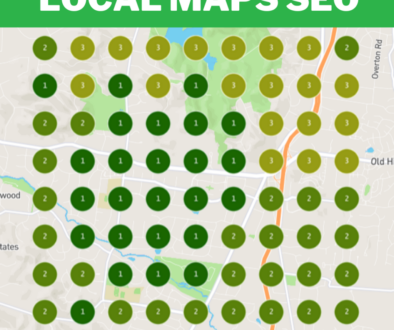SEO TRENDS IN 2016 AND BEYOND
Change is inevitable. Search Engine Optimization is not immune to this rule. With the New Year brings advancements in SEO and a new emphasis on different areas of web design. According to the survey conducted by?moz.com, there are several factors that SEO experts predict will change in their effect on web rankings in 2016. Here are the top five:
1) DESIGN
Google, Bing, and the other search engines want their customers to have a pleasant experience. In marketing, we call this managing the customer experience. That?s pretty simple, right? What this means for your website is that the better the design, readability, and usability, the higher the rankings. The sophistication of the tools being used by these companies means they can and will be more selective moving forward. They want their customers to receive the best results with the best design and content, therefore, web design quality will greatly affect SEO in 2016.
2) PAGE INTERACTION?DATA
There are two very important metrics used by search engines when ranking websites on the Search Engine Results Page (SERP). These are the SERP Click-Through Rate and Dwell Time. The Click-Through Rate determines how many times a website is clicked versus how many times it has appeared in the Search Engine Results Pages. The number of times it has appeared in the results page is known as the number of ?impressions? and the amount of clicks is known as . . . well . . .?clicks. For example, 100 clicks/1000 impressions = a CTR of 10%. Dwell time is simply the amount of time a user spends on your site. If users are spending a few minutes or more on your website, this tells the search engines that your content is relevant to the search terms used. These two metrics work in unison. You cannot be sneaky and use relevant titles to obtain a high CTR but have no relevant content on your pages. This would work against you because the low Dwell Time would send a signal to Google that your content is not relevant and this would hurt your rankings. It?s all about relevant content which is why the search engines will put a lot of weight on usage data in 2016.
3) INSTANT ANSWERS PROVIDED IN SERPS (SEARCH ENGINE RESULT PAGES)
Many SEOs and other marketing professionals hate the Google Answer Boxes. Why, you ask? Let?s look at an example: if you go to Google and search ?who is playing in the SuperBowl,? you will see a Google Answer Box showing you the information you were looking for. That?s great, right? It is for the consumer but perhaps not so much for the marketing department of the NFL. You received the answer without needing to go to the NFL?s website. This reduces the CTR for their website. However, we could look at this a different way. We could look at this as Google helping promote the game free of charge on behalf of the NFL. It really depends on the industry and answer being provided weather this is beneficial or not. Regardless of the implications on certain brands, this is definitely going to affect the way websites are ranked moving forward. If people received the answers they are looking for without having to go to your site, your site is going to lose relevance. Keep this in mind when building your website.
4) ANALYSIS OF A SITE?S PERCEIVED VALUE
We all saw this one coming, right? Gone are the days in which you could show up at the top of a SERP simply by having a lot of key words on your page. You must deliver valuable content to the consumer in order to gain rankings. The search engine algorithms are very sophisticated and intelligent. They allow Google to sniff out the spam and promote the genuine content. Include in your content, if you can, original images. Stock images are okay but original images show Google that you provide original content.
5) MOBILE FRIENDLINESS
Smartphones and tablets are everywhere. People are opting to search for items on their mobile devices more and more as opposed to searching on a pc or mac. How many times have you heard of a term or company that you didn?t recognize and whipped out your phone to learn more?? We all do it! This means your site must be mobile friendly. Google, Bing, Yahoo, and the like are all concerned about user experience and they do not want to send their customers to a site that will not work properly on a mobile device. Make sure you optimize your website for use on smartphones and tablets.
The bottom line: it?s all about relevancy. You may be thinking, ?That?s nothing new. Relevant content has always been important.? You would be correct but what has changed is the amount of weight put on these 5 areas. It is important for your business to stay relevant on the web and that you put the effort into covering these five bases.
By Zach Atchley



